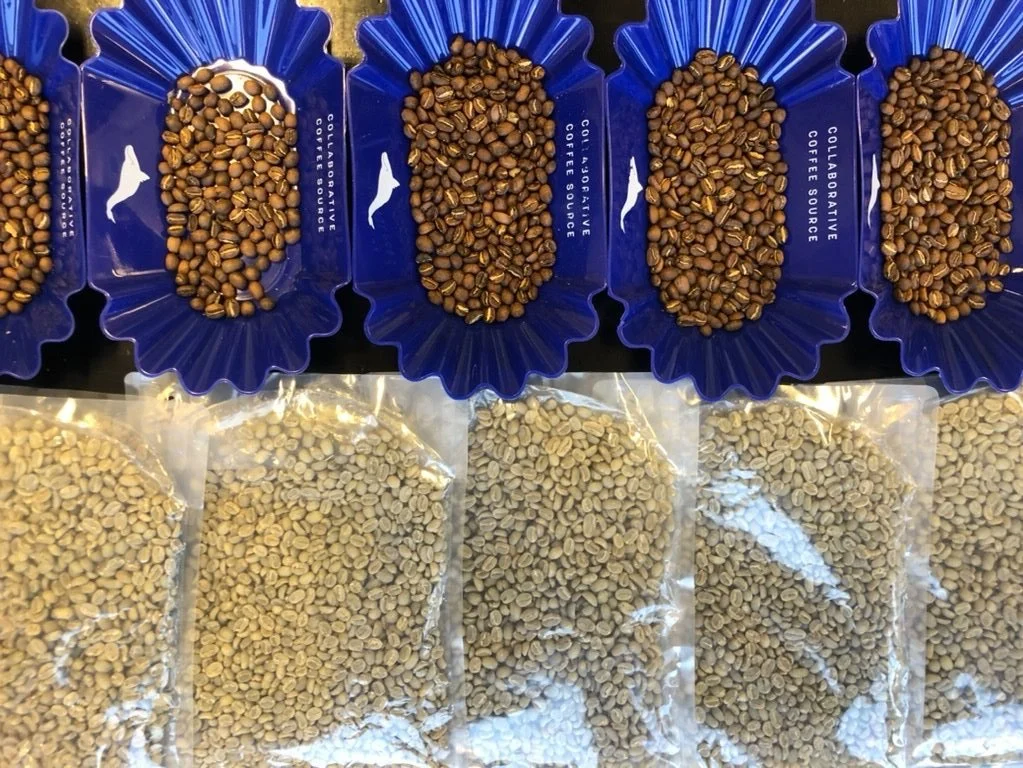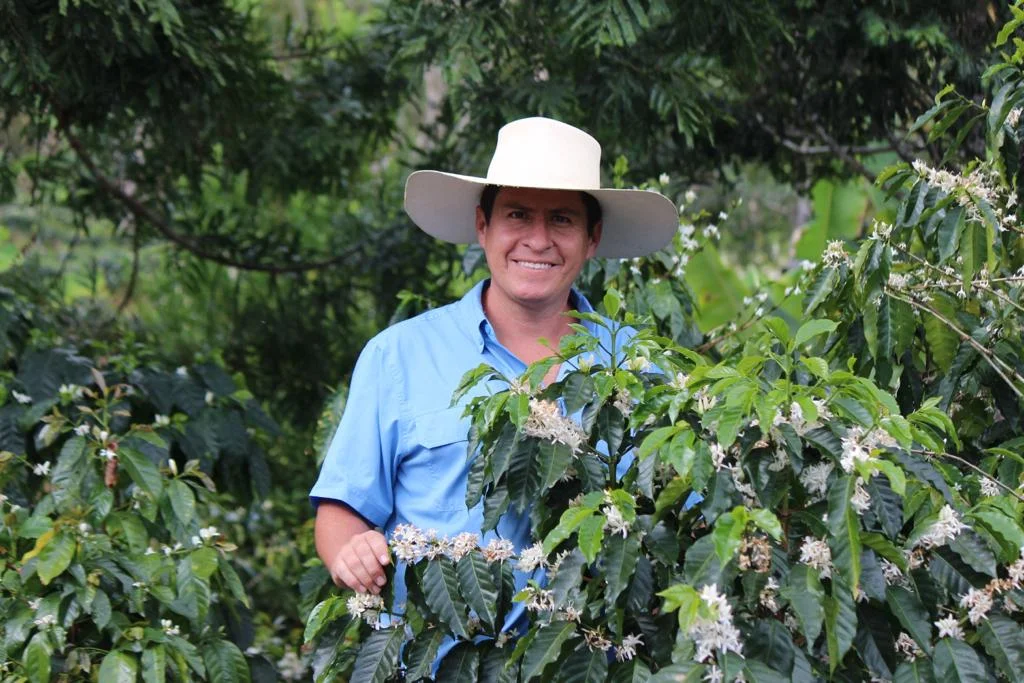Ahead of her performance in the World Brewers Cup at the International Coffee Week in Brazil, Veronika found time to visit our friends from Carmo Coffees, to discover the rigor and ambition behind their new experimental lots.
Brazil: competitions & competition coffee
If you are a coffee competitor, or an avid fan of coffee competitions, your eyes will be on Brazil from November 7 to 9. Belo Horizonte will host this year’s International Coffee Week, which will feature not one but four world coffee championships:
World Coffee in Good Spirits Championship
World Latte Art Championship
World Cup Tasters Championship
World Brewers Cup
Veronika wows the (CCS) judges while training for her upcoming World Brewers Cup performance. Before her competition, Veronika will visit Carmo Coffees to cup some of their exciting new experimental lots.
Brazil - the new origin for competition coffees
Our own Veronika Galova Vesela will be there, both as a competitor, and to source competition coffees for 2019.
These events could not come at a better time for Brazil’s specialty coffee producers, like our partners in the region, Carmo Coffees. Carmo have been experimenting for several years with exotic varieties and innovative fermentation techniques, and just launched their own series of unique and surprising coffees, worthy of competition. That’s right, Brazil is producing competition coffee.
CCS will be cheering for two competitors in the World Brewers Cup this year: Veronika, who will represent her home country Slovakia, brewing Finca Deborah, and Tom Kuyken, the Norwegian champion, who will brew an anaerobic Sudan Rume from Carmo Coffee’s experimental farm, Santuario Sul.
The farm, which began almost five years ago, is a collaboration between Luiz Paulo Pereira, producer and exporter with Carmo Coffees, Camilo Merizalde, the pioneering Colombian behind the Santuario project, and fermentation expert, Ivan Solis, from Costa Rica. Santuario Sul currently has 30 hectares of land in coffee production, and they aim to expand to 70 hectares very soon.
New varieties
Santuario Sul features 25 different varietals, making it the biggest coffee garden in Brazil. Last year they harvested a their first crop of Sudan Rume. This year saw the first harvest of SL28.
Innovative Processing
As the new trees began producing fruit, the team began to experiment with processing, including anaerobic fermentation. Rather than import expensive equipment from overseas, they looked in their own backyard. Carmo de Minas is dairy country — Luiz Paulo's grandmother is as famous for her cows as she is for coffee — so they bought a fermentation tank used for cheese making.
The closed steel tanks are easy to clean and feature double walls and temperature controls, which Ivan Solís adapted to the exact temperature range required for coffee processing. The tank used on Santuario Sul can process 2000 liters of cherries at a time - around ten bags of green coffee.
Ivan Solis (right), fermentation and processing expert from Costa Rica, and Alessandro "Viola", processing manager at Irmas Pereira with the adapted cheese making fermentation tank used for anaerobic processing on several Carmo Coffees farms.
The ANAEROBIC PROCESS at SANTUARIO SUL
The cherries are hand-picked to ensure perfect maturity, then washed to remove any juice excreted during the picking process which can significantly reduce the clarity in the cup.
The team then measure the Brix levels of the cherries. If they are higher than 23, the cherries are used for anaerobic fermentation. If the Brix levels are lower than 23, they are destined to become naturals.
The selected cherries are placed in the adapted dairy tank for 60 hours without any movement, then the tank is opened to check the PH level. When the PH of the mucilage inside the fermenting cherries reaches 4.5, it is time to take them out.
After fermentation the cherries are removed and left to dry with the cascara still intact. Drying takes between 18 to 21 days, depending on the weather. The resulting cup is the perfect combination of washed and natural: clean, bright, full of fruit and sweetness.
Learn more about the Santuario Sul project.
Competing with Brazilians
Brazil is better known for espressos and blenders, than head-turning micro-lots, but Tom Kuyken is not the only barista who will present a Brazilian coffee this year. The location of the competitions has inspired many a coffee competitor to take a second look at this origin.
Finding your competition coffee
Are you looking for that stunning coffee to wow the judges in an upcoming competition? Check out our Competition Coffee offering, and get in touch with Veronika to book your lot now.
Planning for next year? Before her competition Veronika will visit Carmo Coffees, to cup and learn, and discover those gems for shipment in 2019. Plus, we are thrilled to announce we will soon distribute Finca Deborah coffee, and we can expect more delicious surprises from our friends at La Palma y El Tucán, so stay tuned for exciting arrivals in the coming year.







